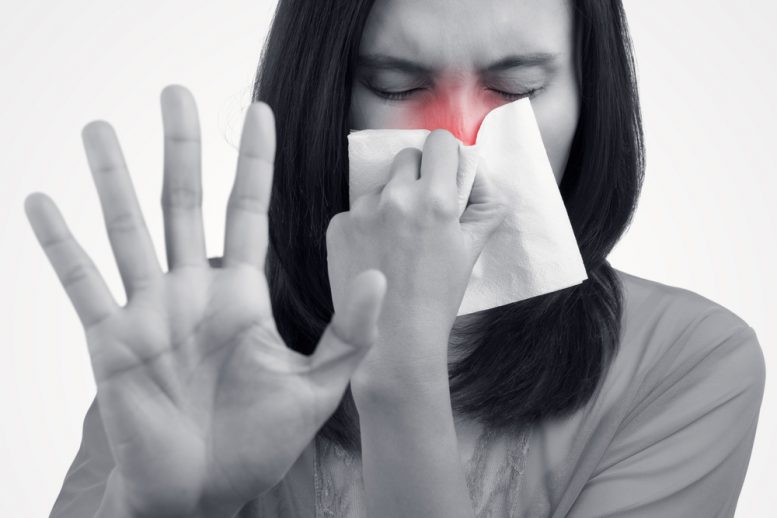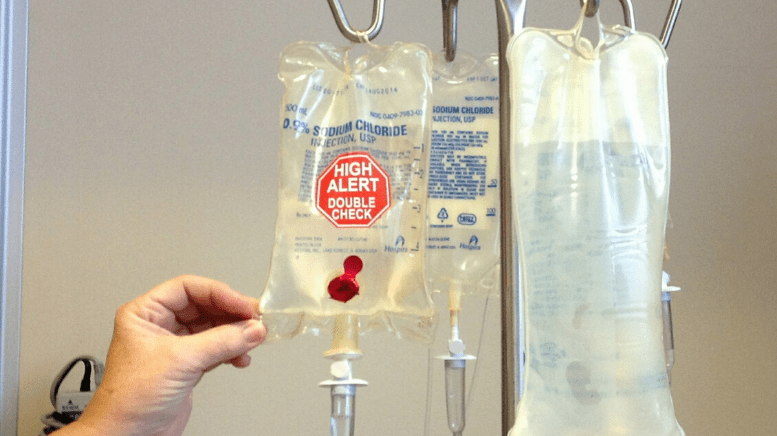Allergic rhinitis, commonly known as hay fever, is an allergic response to specific allergens. There are several options for treating allergic rhinitis including medications, home remedies and even alternative medicines. Talk to your doctor before trying any allergic rhinitis treatment.
Antihistamines
Antihistamines are a great allergic rhinitis treatment that helps alleviate your symptoms.
Some commonly-used over-the-counter (OTC) antihistamines include:
- desloratadine (Clarinex)
- loratadine (Claritin)
- cetirizine (Zyrtec)
- fexofenadine (Allegra)
- diphenhydramine (Benadryl)
- levocetirizine (Xyzal)
Talk to your doctor before starting any medication as an allergic rhinitis treatment to ensure it won’t interfere with other drugs or a medical condition.
Decongestants
Decongestants are a good short-term allergic rhinitis treatment, but should be used for no longer than three days to relieve sinus pressure and a stuffy nose. However, using decongestants for an extended period can cause a rebound effect, meaning once you stop, your symptoms will get worse.
Common over-the-counter decongestants include:
- pseudoephedrine (Sudafed)
- phenylephrine (Sudafed PE)
- oxymetazoline (Afrin nasal spray)
- cetirizine with pseudoephedrine (Zyrtec-D)
If you have heart disease, an abnormal heart rhythm, a sleep disorder, high blood pressure, a history of stroke, bladder issues or anxiety, speak with your doctor before using a decongestant as an allergic rhinitis treatment.
Eye drops and nasal sprays
Eye drops and nasal sprays can help temporarily relieve a runny nose, itchy, watery eyes and other allergy-related symptoms. However, depending on the product, you may need to avoid these as a long-term allergic rhinitis treatment. Like decongestants, overusing nose and eye drops can cause a rebound effect.
Corticosteroids help with inflammation and immune responses, are available both over-the-counter and by prescription, and do not cause a rebound effect. For those that suffer from regular allergies, steroid nasal sprays are recommended as a long-term, useful allergic rhinitis treatment.
Talk to your doctor before starting a regimen of any allergic rhinitis treatment to ensure you are taking the best medications for your symptoms. You doctor can also tell you which products are made for short-term use and which are designed for long-term allergic rhinitis treatment.
Immunotherapy
A physician may recommend immunotherapy or allergy shots for those with severe allergies. You can use this allergic rhinitis treatment plan along with medications to control your symptoms. Allergy shots decrease your immune system’s response to particular allergens over time and require a long-term commitment.
An allergy shot regimen includes different phases. During the buildup phase, you’ll go to your allergist to get a shot one to three times per week for roughly three to six months so your body has a chance to get used to the allergen being administered.
During the maintenance phase, you will likely be asked to see your allergist for shots every two to four weeks for three to five years. You may not notice a change until at least year after the maintenance phase begins. Once you reach this point, your allergy symptoms may fade or even disappear altogether.
Some people may experience severe allergic reactions to an allergen in their shot. Allergists will likely ask you to wait in the office for 30 to 45 minutes following the shot to ensure that you don’t have an intense or life-threatening response to it.
Sublingual immunotherapy (SLIT)
Sublingual immunotherapy (SLIT) works similarly to allergy shots but without an injection. The process involves placing a tablet containing a mixture of different allergens under your tongue. It is sufficient for treating rhinitis and asthma allergies caused by grass, dust mites, tree pollen, cat dander, and ragweed.
You can take SLIT treatments like Oralair for certain grass allergies, at home after an initial consultation with your doctor. Your first dose of any SLIT treatment will take place in your doctor’s office. Like allergy shots, the medication is taken frequently over a period of time that is determined by your doctor.
Possible side effects of SLIT include itching in the ear or mouth and throat irritation. In rare cases, SLIT can cause anaphylaxis. Talk to your physician about SLIT as an allergic rhinitis treatment to see if your allergies will respond.
Home remedies
At-home allergic rhinitis treatment can be helpful, depending on your allergens. If you have seasonal or pollen allergies, try using an air conditioner instead of opening your windows.
Using a high-efficiency particulate air (HEPA) filter or dehumidifier can help you control your allergies while indoors. If you’re allergic to dust mites, a great way to reduce your reaction is to wash your sheets and blankets in hot water above 130°F (54.4°C). You can also try adding a HEPA filter in your vacuum and vacuuming weekly or limiting the amount of carpet in your home can also be helpful in reducing allergies.
It is best to consult with your doctor before you decide on any one of the allergic rhinitis treatments mentioned.
Featured Image: Depositphotos © Tharakorn









